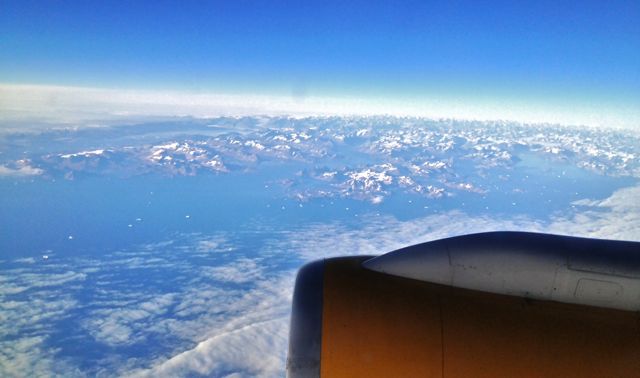 In a perfect travel world, airline trips could generate an additional $35 billion for the U.S. economy, but airport and flight hassles prevent many people from taking trips to begin with, the U.S. Travel Association says, citing a survey that identifies some key concerns, including flight delays and long airport lines.
In a perfect travel world, airline trips could generate an additional $35 billion for the U.S. economy, but airport and flight hassles prevent many people from taking trips to begin with, the U.S. Travel Association says, citing a survey that identifies some key concerns, including flight delays and long airport lines.
Targeted federal investments in airport infrastructure could help, as long as any revenues from new fees are re-invested in airports and not used to plug other budget holes, the trade group says, advocating for more fee transparency to help travelers plan their budgets. The group also would like to see airport expansions and more flight options to increase competition.
The survey shows that security lines and checked-bag fees are among the well-publicized headaches of air travel, but passengers’ No. 1 concern are flight delays and cancellations.
An economic analysis of the survey results found that air travel hassles are taking their toll on the broader economy. Passengers' frustration with the flying experience resulted in 38 million avoided domestic plane trips in 2013. Although air travel has steadily increased since the recession, 38 million trips is a loss equal to eight percent of current air travel demand.
That suppressed activity had a significant downstream effect on travel-related businesses and the overall economy, including spending losses of:
- $9.5 billion on airfare
- $5.8 billion on hotels
- $5.7 billion on recreation
- $3.4 billion on food services
- $2.8 billion on car rentals
The analysis found that cancellations and delays cost passengers themselves $8.5 billion in time lost, missed connections, and missed travel activity. The total hit to the U.S. economy: $35.7 billion.
"Whether it be for business or leisure, travel activity is indisputably terrific medicine for the U.S. economy," said U.S. Travel Association president and CEO Roger Dow. "One of our major aims is to help our leaders better prioritize travel-related policies that will get this country moving. This survey shows that modernizing our air travel infrastructure should be a top national priority."
For the question, "Which of the following are you most concerned about before taking a trip by air?" top responses from surveyed travelers were:
- Delays/cancellations (39 percent)
- Fees imposed by airlines for checked bags, seat assignments etc. (26 percent)
- Safety (11 percent)
- Security screening (8 percent)
- No concerns (6 percent)
Dow said that a significant amount of congressional attention has been paid to air travel policy recently—specifically upon the issue of government taxes on airline tickets, which is the subject of competing bills in the House and Senate. But he noted that one percent of survey respondents listed government-imposed costs as their top flying concern—tied with "don't know" for dead last in response to that question.
"In other words, two bills in Congress are aimed at an issue that is named by about one in every 100 travelers as a central concern," Dow said. "Meanwhile, upgrades to air traffic control are a decade behind schedule, and airports are struggling just to keep up with maintenance, let alone expand so that capacity and economic activity can comfortably increase. The most recent global ranking did not place a single U.S. airport in the top 25. It is threatening our ability to compete."
Other notable results from the air passenger survey and analysis:
About nine out of 10 travelers said that in the past year, air travel has become either more of a hassle or stayed about the same.
60 percent of air travelers say they would take an average of 2.6 more trips per year if air travel were made more efficient.
91 percent of travelers say the overall cost of flying is a "very important" or "somewhat important" factor in deciding whether or not to purchase an airline ticket.
- 92 percent support—and 68 percent "strongly support"—a proposed U.S. Department of Transportation rule that would require airline ticket sellers to display pricing with add-on fees included.
- 81 percent feel that the overall cost of air travel has either "somewhat" or "significantly" increased in the past year. 16 percent feel it is about the same, and only one percent think flying is cheaper.
- Asked which factor is most responsible for recent spikes in the cost of air travel, 31 percent said airlines reducing the number of flights; 25 percent said airline-imposed add-on fees; and 23 named jet fuel prices.
- 91 percent list as either "very important" or "somewhat important" airport projects that enhance safety, security and capacity; reduce noise; and increase carrier competition.
- Surprisingly, more than half of passengers (52 percent) said they would be willing to pay slightly more to fly if the extra cost funded projects that reduce delays and cancellations and improve the overall passenger experience at airports.
Filed in Colorado News |